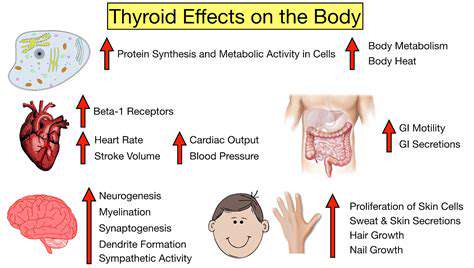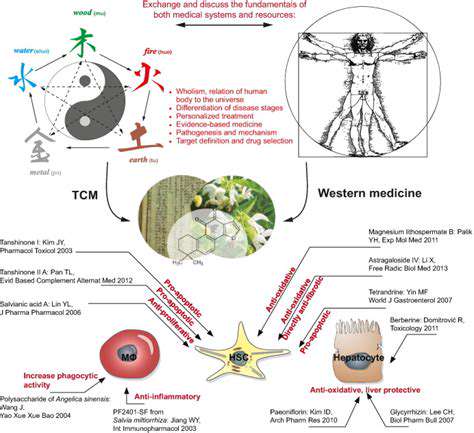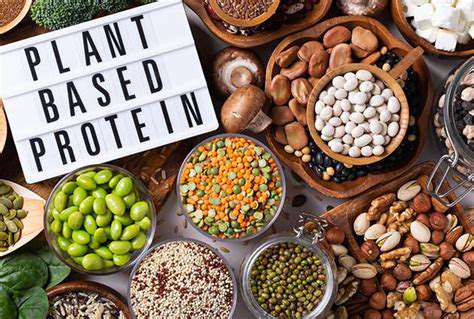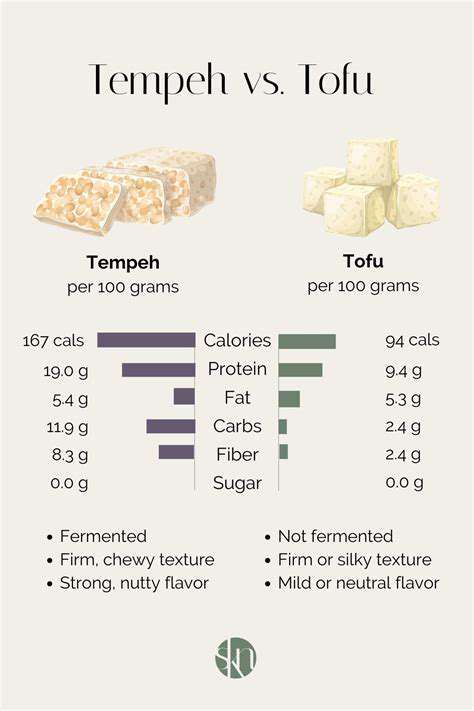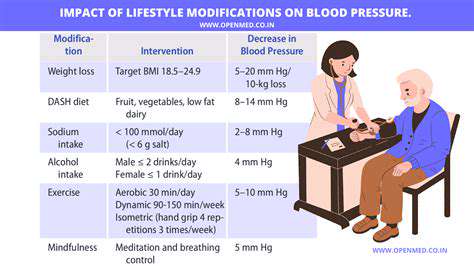The Benefits of Mindful Eating for Digestive Health
The Gut-Brain Axis: A Two-Way Street
The intricate relationship between the mind and the gut, often called the gut-brain axis, represents a dynamic communication highway. This biological superhighway proves that our digestive system doesn't just process food—it profoundly shapes our mental landscape. Our gut contains millions of neurons and trillions of microbes that constantly exchange messages with the brain through neural, hormonal, and immune pathways. These exchanges influence everything from our daily mood to how we handle stress.
Scientific studies reveal concrete links between gut health and mental health conditions. When researchers examine patients with anxiety or depression, they frequently find corresponding imbalances in gut bacteria. This discovery has revolutionized our understanding of mental health treatment.
The Microbial Universe Within Us
Our digestive tract hosts an entire ecosystem—the gut microbiome—containing bacteria, viruses, and fungi that outnumber human cells. These microscopic residents actively participate in digestion, manufacture essential vitamins, and train our immune system. Their composition directly affects neurotransmitter production, influencing whether we feel energized or lethargic, calm or anxious.
Nourishing this microbial community requires thoughtful food choices. Fiber-rich plants act as fertilizer for beneficial bacteria, while fermented foods introduce helpful new strains. Eating slowly and chewing thoroughly—simple acts we often overlook—can significantly improve microbial diversity.
When Stress Disrupts the Balance
Modern stress doesn't just tense our shoulders—it wreaks havoc on our gut. Chronic stress alters gut permeability, allowing harmful substances to enter the bloodstream while reducing microbial diversity. This creates a vicious cycle: stress damages the gut, which then impairs stress regulation in the brain.
Breaking this cycle requires intentional practices. Just ten minutes of daily meditation can lower inflammatory markers while increasing beneficial gut bacteria. Deep breathing exercises stimulate the vagus nerve—the body's natural relaxation pathway—creating biochemical changes that benefit both mind and gut.
Transforming Eating Into a Healing Practice
Mindful eating turns meals into meditation. By focusing on food's colors, aromas, and textures, we engage digestion before the first bite. This practice triggers optimal enzyme production and gut motility. Studies show mindful eaters absorb nutrients more efficiently while experiencing fewer digestive complaints.
Food Choices That Shape Mood
Every meal votes for mental health. Processed foods feed inflammation-linked bacteria, while colorful plants nourish strains associated with calmness. Omega-3 rich foods like walnuts and flaxseeds build brain cell membranes, enhancing neurotransmitter function. The most powerful antidepressants might grow in gardens, not pharmacies.
Harnessing Awareness for Emotional Balance
Mindfulness practices create space between stimulus and response. When we observe emotions without immediately reacting, we gain power over impulsive eating and stress responses. Body scan meditations reveal how emotions manifest physically—often as gut sensations we previously ignored.
Simple Steps for Daily Harmony
Practical integration matters most. Start meals with three conscious breaths. Chew each bite twenty times. Keep a food-mood journal. These small acts accumulate into significant changes. Over time, they rewire the gut-brain connection toward greater resilience and vitality.
Reducing Stress and Promoting Relaxation for Optimal Digestion
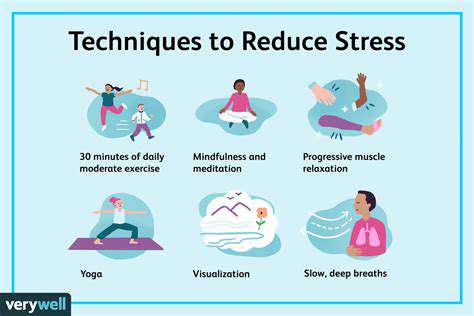
Decoding Your Stress Signature
Stress manifests uniquely in each person. Some experience digestive upset, others muscle tension or racing thoughts. Identifying your personal stress fingerprint is the first step toward effective management. Track physical and emotional responses to pinpoint your most vulnerable systems.
Chronic stress operates like a car alarm that won't shut off—eventually, the body stops responding appropriately. This dysregulation contributes to numerous health conditions, making stress reduction not just beneficial but essential.
Movement as Medicine
Physical activity remains one of nature's most potent stress relievers. Yoga's combination of movement and breath work particularly well for gut health, massaging internal organs while calming the nervous system. Even a daily ten-minute walk can shift gut bacteria toward more beneficial strains.
The Art of Conscious Relaxation
Progressive muscle relaxation teaches the body to distinguish between tension and release—a skill many stressed individuals have forgotten. Pair this with diaphragmatic breathing to activate the parasympathetic nervous system. These techniques become more effective with practice, creating cumulative benefits.
Designing a Stress-Resistant Lifestyle
Small environmental tweaks yield significant results. Blue light filters for evening screen use protect melatonin production. Scheduled worry time contains anxious thoughts. Meal planning reduces decision fatigue. These strategies create scaffolding for sustainable stress management.
Beyond the Plate: Cultivating a Healthier Relationship with Food

From Fuel to Relationship
A healthy food relationship transcends nutrition facts. It involves honoring hunger without guilt and stopping when satisfied without restriction. This balanced approach reduces the binge-restrict cycle that plagues many modern eaters.
Personalized Nutrition Principles
While general guidelines exist, optimal eating varies by individual. Factors like genetics, microbiome composition, and activity levels create unique nutritional needs. Working with a nutrition professional helps identify which foods truly nourish your particular biology.
The Mindful Eating Advantage
Mindful eating transforms consumption into experience. By engaging all senses, we derive more satisfaction from smaller portions. This practice naturally regulates appetite hormones better than any diet plan. Start by eliminating distractions during one daily meal.
Breaking the Emotional Eating Cycle
Emotional eating often represents unmet needs. Before reaching for food, pause to identify the underlying emotion. Is it loneliness? Stress? Boredom? Developing alternative coping strategies—like calling a friend or taking a walk—creates sustainable change.
Portion Awareness Without Obsession
Visual cues help maintain reasonable portions without counting calories. A serving of protein should match your palm size, while starches fit in a cupped hand. Vegetables fill the remaining plate space. This intuitive method maintains balance without rigid rules.
Building Lasting Food Peace
Sustainable habits form through repetition, not perfection. Progress matters more than flawless execution. Celebrate when you choose nourishing foods because they make you feel good, not because some diet mandates them. This mindset shift creates lifelong positive relationships with food.
